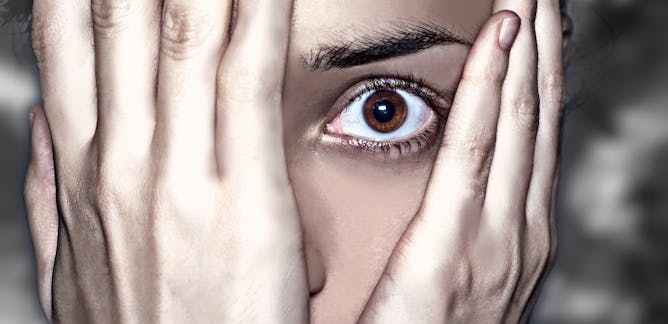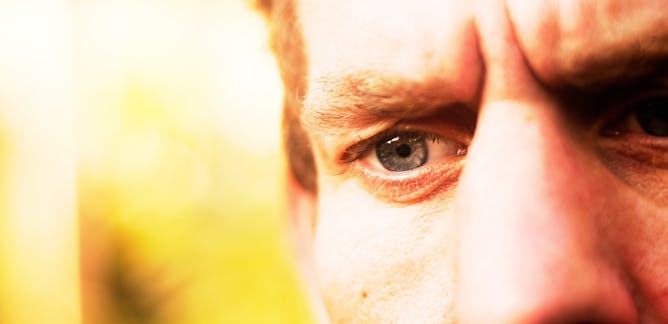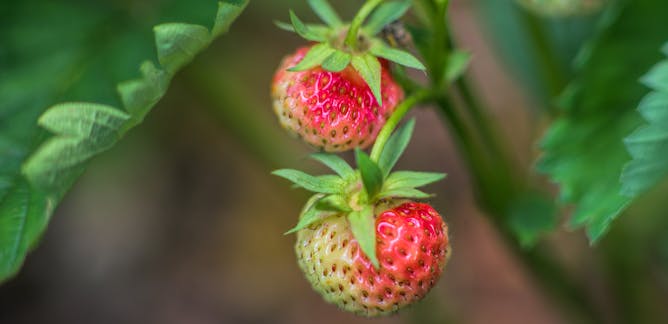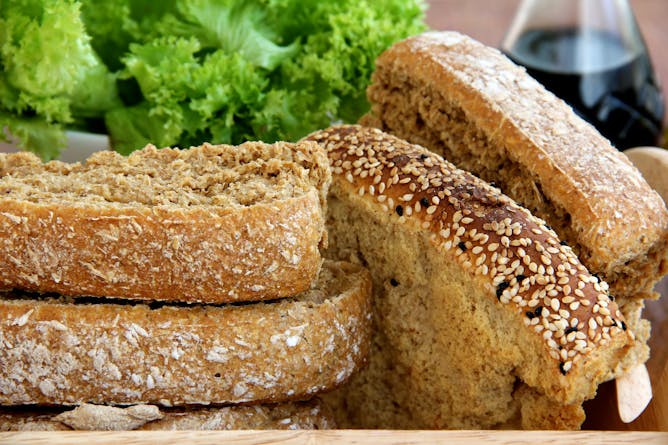|
|
|
Your weekly dose of evidence
|
|
As many as one in seven people have a panic attack at least once in their life. Panic attacks often seem to come out of nowhere, causing breathing difficulties, rapid heartbeat, tightness in the chest, dizziness and sweating. They can even come on at night when you’ve been asleep. As Justin Kenardy explains, panic attacks are your body’s way of coping with perceived threats. This might be physical or emotional stress that has accumulated over time.
What should you do if someone close to you is having a panic attack? Remind them that while it’s unpleasant, it’s not dangerous and will pass. “Perhaps the most useful thing to do … will be to help to re-focus their mind, away from the thoughts that are causing stress,” Professor Kenardy writes. “But you can also give them a sense of control over the physical effects of the attack. This can be done by helping to slow and pace the person’s breathing.”
|
Fron Jackson-Webb
Deputy Editor/Senior Health + Medicine Editor
|

|
|
|
|

Panic attacks occur when a high level of stress builds up. They can be scary, especially if you’ve never had one before.
From shutterstock.com
Justin Kenardy, The University of Queensland
When we have a panic attack, our body is mobilising to respond to a high level of stress. As unpleasant as panic attacks may be, it's helpful to keep in mind they're not dangerous.
|
From the archives: stress and anxiety
|

People who are chronically stressed are more than twice as likely to have a heart attack than those who aren’t.
Tim Gouw
Stephen Mattarollo, The University of Queensland; Michael Nissen, The University of Queensland
Stress has subtle, underlying effects on almost every part of the body, including the heart, gut and immune system.
|

Mindfulness can refer to a specific set of meditation practices, but its precise definition isn’t clear.
From shutterstock.com
Nicholas T. Van Dam, University of Melbourne
There can be many benefits in practising mindfulness. But it's not a way to relax or escape from your problems.
|
|
|

Michelle H Lim, Swinburne University of Technology
Exposure therapy, where people face their feared social situations, is one treatment that can be used to treat social anxiety. So how does it work?
| |

Anthony Jorm, University of Melbourne
Australians have come a long way in understanding depression. Most recognise the symptoms and believe in the value of professional help. But anxiety disorders have been left behind.
|
|
|
Expert answers to serious, weird and wacky questions
|

David Farmer, Florey Institute of Neuroscience and Mental Health
The brain itself can’t actually feel pain. It can't sense damage to itself the way your finger can. We know this because people can have brain surgery while they are totally awake.
| |

Paul Holford, Western Sydney University
Fruit ripening is all about plants getting animals to eat the seeds that are inside their fruits. This helps the plants get their seeds to somewhere new where they can grow into a new plant.
|
|
|
Top picks from the week
|

We previously thought moderate drinking could be good for our health. There’s now evidence that says the opposite.
From shutterstock.com
Hassan Vally, La Trobe University
Evidence that people who drink moderately are healthier is probably influenced by many other health and lifestyle factors. We're now seeing that even modest amounts of alcohol could impact our health.
|

Pets are a common sight in places like cafes overseas, but are generally unwelcome in many public places in Australia.
Anastasiya Lobanovskaya/Pexels
Louise Grimmer, University of Tasmania; Gary Mortimer, Queensland University of Technology
Pets are not welcome in many public places. As we increasingly choose high-density living, city planning and legislation should address creating opportunities for more human-animal interaction.
|

You don’t have to quit bread, but make sure it’s wholegrain.
Shutterstock
Yasmine Probst, University of Wollongong; Elizabeth Neale, University of Wollongong; Vivienne Guan, University of Wollongong
When it comes to weight loss, there's no such thing as a quick fix. But some foods will keep you feeling fuller for longer.
|
|
|
| |
Featured jobs
|

|
Whitley College — Parkville, Victoria
|

|
CSIRO — Clayton, Victoria
|

|
RMIT University — Bundoora, Victoria
|

|
Monash University — Clayton, Victoria
|
|
|
|
Featured events
|

|
The University of Sydney, Sydney, New South Wales, 2006, Australia — University of Sydney
|

|
Doherty Institute for Infection and Immunity, Melbourne, Victoria, 3000, Australia — University of Melbourne
|

|
The University of Sydney, Sydney, New South Wales, 2006, Australia — University of Sydney
|

|
Deakin Downtown, 727 Collins Street, Melbourne, Victoria, 3008, Australia — Deakin University
|
|
|
|
| |
| |
| |
| |
| |
|
|
|
|
|
|
|